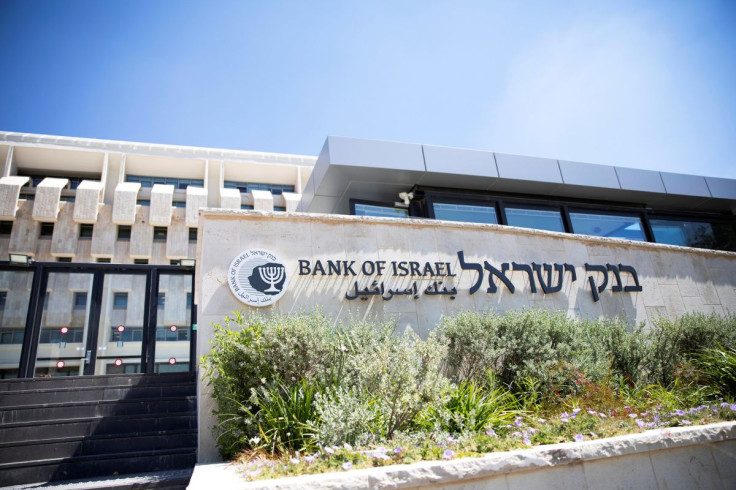Bank Of Israel To Hike Rates 1/4-point Next Week As Inflation Hits 4%

The Bank of Israel will likely raise short-term interest rates by a quarter-point next week to rein in rising inflation, partly caused by low unemployment and strong economic growth.
Of 14 economists polled by Reuters, 11 forecast that the central bank's monetary policy committee (MPC) will raise the benchmark rate to 0.6% from 0.35% when it announces its decision on Monday at 4 p.m. (1300 GMT). Three others anticipate a stronger 0.4 point increase to 0.75%.
"In light of inflation, the depreciation of the shekel and interest rate increases in the world, and despite the weak growth figure" the Bank of Israel will raise its key rate 0.25 point, said Ofer Klein, head of economics and research at Harel Insurance and Finance.
Policymakers embarked on a tightening cycle last month, raising the rate from an all-time low of 0.1% for its first rate increase since 2018 and where it had been since a 0.15 point reduction at the outset of the COVID-19 pandemic.
Israel's inflation rate reached a new peak since 2011 of 4% in April, above the government's annual target of 1% to 3% and joining the United States and some European central banks in tightening policy to try and relieve pressure on prices.
Some analysts foresee inflation at close to 5% before moderating.
At the same time, Israel's economy contracted an annualised 1.6% in the first quarter from the prior three months but economists largely dismissed the figure as misleading and said the economy -- which grew 8.2% in 2021 -- remains robust. The Bank of Israel estimates 5.5% economic growth in 2022.
Israel's jobless rate fell to 3.1% in April from 3.4% in March, underscoring a tight labour market and concerns of a wage spike.
As a result, analysts believe a 0.4 point move up in key interest rates is possible.
The Bank of Israel will likely raise rates to "get to the point of neutrality, if not tighter than neutrality," as soon as possible, said Bank Leumi chief economist Gil Bufman.
Citi economist Michel Nies said he could "almost equally well argue the case for a 40 basis point hike and mostly choose the 25 basis point increment" since "it might give the Bank of Israel more options in the subsequent meeting."
Analysts widely expect rates to reach 2% in the next year.
The bank's own economists see an inflation rate of 3.1% in the coming year, and the key interest rate rising to 1.5%. Central bank chief Amir Yaron has said he expected Israel to move slower than its peers, with the pace of rate hikes dependent on future inflation and growth data.
One factor in favour of a smaller increase is the weaker shekel, which has depreciated 8% so far this year versus the dollar. A larger rate hike, analysts believe, could rapidly strengthen the Israel currency and harm exports.
The shekel in the last week has appreciated to 3.35 per dollar from 3.47.
© Copyright Thomson Reuters {{Year}}. All rights reserved.





















